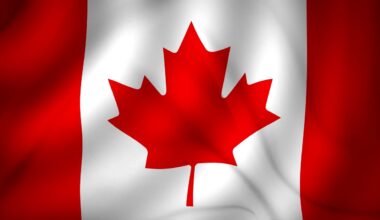Published May 12, 2025
How Canada Express Entry Works: Your Gateway to Permanent Residence
Canada Express Entry revolutionized skilled immigration when it launched in January 2015, creating a streamlined digital system for managing permanent residence applications. This comprehensive management system handles three of Canada’s main economic immigration programs: the Federal Skilled Worker Program, the Federal Skilled Trades Program, and the Canadian Experience Class. Rather than processing applications in order of receipt, Canada Express Entry ranks candidates using a comprehensive points-based system and invites only the highest-scoring applicants to apply for permanent residence.
The Canada Express Entry system has processed hundreds of thousands of successful applications since its inception, with current processing standards averaging six months from invitation to decision. This digital-first approach replaced paper applications with a responsive online portal that allows real-time profile updates and transparent selection criteria. Understanding how Canada Express Entry works is essential for any skilled worker, tradesperson, or Canadian experience holder looking to immigrate permanently.
 Canada Express Entry Eligibility: Qualifying for the Candidate Pool
Canada Express Entry Eligibility: Qualifying for the Candidate Pool
Before entering the Canada Express Entry pool, you must qualify for at least one of these three federal economic immigration programs:
Federal Skilled Worker Program Requirements
The FSWP within Canada Express Entry requires:
- Minimum one year of full-time (or equivalent part-time) skilled work experience in NOC TEER 0, 1, 2, or 3
- Language proficiency of at least CLB 7 (IELTS: 6.0 reading, 6.5 speaking, 6.0 listening, 6.0 writing)
- Canadian or foreign education with Educational Credential Assessment
- Minimum 67 points on the selection factors grid
- Proof of settlement funds (unless exempt with valid Canadian job offer)
Federal Skilled Trades Program Requirements
The FSTP within Canada Express Entry requires:
- Minimum two years of full-time experience in a skilled trade within the five years before applying
- Language proficiency of at least CLB 5 for speaking/listening and CLB 4 for reading/writing
- Either a valid job offer for at least one year OR a Certificate of Qualification in your trade
- Proof of settlement funds (unless exempt with valid Canadian job offer)
Canadian Experience Class Requirements
The CEC within Canada Express Entry requires:
- Minimum one year of full-time (or equivalent part-time) skilled Canadian work experience within the three years before applying
- Language proficiency of at least CLB 7 for NOC TEER 0 or 1 jobs, or CLB 5 for TEER 2 or 3 jobs
- No formal education requirements
- No settlement funds requirement
You can verify your eligibility using the official IRCC eligibility tool before starting your Canada Express Entry profile.
Creating Your Canada Express Entry Profile: Required Documentation
Before entering the Canada Express Entry pool, gather these essential documents:
Language Testing Results
Official language tests are mandatory for all Canada Express Entry candidates:
- English options: IELTS General Training or CELPIP-General
- French options: TEF Canada or TCF Canada
- Results valid for 2 years from test date
- All four abilities must be assessed (reading, writing, listening, speaking)
Educational Credential Assessment (ECA)
For education obtained outside Canada:
- ECA required from IRCC-approved organization
- Most common providers include WES, ICAS, and IQAS
- Results valid for 5 years
- Post-secondary education not mandatory but improves scoring
Employment Documentation
For work experience claims:
- Reference letters on company letterhead
- Must include job title, duties, dates, hours/week, salary if possible
- Contact information for verification
- Supporting evidence (pay statements, tax documents, contracts)
Personal Information
Basic documentation needed:
- Valid passport (recommended validity of at least two years)
- Marriage certificate if applicable (with certified translation if not in English/French)
- Birth certificates for all family members
- Passport-style digital photos
The Comprehensive Ranking System: How Canada Express Entry Scores Work
The key to success in Canada Express Entry is understanding the Comprehensive Ranking System (CRS) that determines your position in the candidate pool:
Core/Human Capital Factors (up to 500 points)
Age Scoring (maximum 110 points):
- Maximum points for ages 20-29 (110 points)
- Points decrease before age 20 and after age 29
- No points awarded under 18 or over 45
Education Scoring (maximum 150 points):
- Doctoral degree (150 points)
- Master’s degree (135 points)
- Two or more post-secondary credentials, one being 3+ years (128 points)
- Post-secondary program of 3+ years (120 points)
- Post-secondary program of 2 years (98 points)
- Post-secondary program of 1 year (90 points)
- Secondary school only (30 points)
Language Proficiency (maximum 310 points):
- First official language (up to 160 points)
- Second official language (up to 50 points)
- Points increase with higher CLB levels (maximum at CLB 10+)
Canadian Work Experience (maximum 80 points):
- One year (40 points)
- Two years (53 points)
- Three years (64 points)
- Four years (72 points)
- Five+ years (80 points)
Spouse Factors (maximum 40 points if applicable)
If you have a spouse or common-law partner:
- Spouse’s education (up to 10 points)
- Spouse’s language proficiency (up to 20 points)
- Spouse’s Canadian work experience (up to 10 points)
Skill Transferability Factors (maximum 100 points)
Combinations that increase points:
- Education + Language proficiency (up to 50 points)
- Education + Canadian work experience (up to 50 points)
- Foreign work experience + Language proficiency (up to 50 points)
- Foreign work experience + Canadian work experience (up to 50 points)
- Certificate of qualification (trades) + Language (up to 50 points)
Additional Points (maximum 600 points)
Bonus factors that significantly boost scores:
- Provincial/territorial nomination (600 points)
- Valid job offer (50-200 points depending on occupation)
- Canadian education (15-30 points)
- French language proficiency (15-50 points)
- Sibling in Canada who is citizen/PR (15 points)
Calculate your precise CRS score using the official CRS calculator tool.
Canada Express Entry Draw Process: How Selections Work
IRCC conducts regular draws from the Canada Express Entry pool, inviting candidates to apply for permanent residence:
Draw Frequency and Timing
Typical patterns include:
- Draws conducted approximately every two weeks
- Usually held on Wednesdays
- Results published on IRCC website within 24-48 hours
- No advance notice of exact draw dates
Types of Express Entry Draws
The Canada Express Entry system features several draw categories:
- All-program draws: Consider candidates from all three programs
- Program-specific draws: Target specific programs (e.g., CEC-only draws)
- PNP-only draws: Select only provincial nominees
- Category-based selection draws: Target specific attributes (introduced in 2023)
Recent Draw Patterns and CRS Thresholds
Current trends in Canada Express Entry draws:
- All-program draws with cutoffs ranging from 475-500 points
- PNP-only draws with cutoffs around 700+ points (due to 600-point PNP bonus)
- Category-based draws for healthcare, STEM, trades, and French speakers
- Invitations per draw ranging from 3,000-5,000 for all-program rounds
Track the latest draw results on the official IRCC rounds of invitations page.
After Receiving an Invitation to Apply (ITA)
An invitation through Canada Express Entry initiates the final application phase:
60-Day Submission Deadline
Upon receiving an ITA:
- Strict 60-day deadline to submit complete application
- No extensions possible under normal circumstances
- System closes automatically after deadline
- New profile creation required if deadline missed
Required Documentation for Final Submission
Complete applications require:
- Digital copies of all personal documents
- Police certificates from all countries where you’ve lived for 6+ months since age 18
- Medical examination results from IRCC-approved physician
- Proof of funds documentation (if applicable)
- Detailed employment history with supporting evidence
- Family information forms
- Digital photos meeting specifications
- Upfront payment of permanent residence fees
Biometrics Requirement
After application submission:
- Biometrics instruction letter issued
- 30 days to complete biometrics at designated collection point
- Service fee of $85 CAD per person
- Valid for 10 years for future applications
Application Processing Timeframes
Current Canada Express Entry processing standards:
- Six-month processing standard for 80% of applications
- Processing time measured from complete application submission to final decision
- Status checkable through online account
- Possible requests for additional information during processing
Provincial Nominee Programs Through Canada Express Entry
Provincial nomination represents the most powerful boost within the Canada Express Entry system:
Express Entry-Aligned Provincial Streams
Most provinces operate streams that integrate directly with Canada Express Entry:
Ontario’s Human Capital Priorities Stream:
- Searches the Canada Express Entry pool for candidates meeting Ontario’s criteria
- Typically targets candidates with CRS scores 400+
- Focus on specific in-demand occupations
- French-Speaking Skilled Worker sub-stream for French speakers
British Columbia’s Express Entry BC:
- Requires BCPNP registration separate from Canada Express Entry
- Typically requires job offer from BC employer
- Fast-track processing for tech occupations
- International graduate categories for BC graduates
Alberta Advantage Immigration Program:
- Often selects candidates with scores as low as 300 from the Canada Express Entry pool
- Prioritizes candidates with Alberta connections
- Focus on diversifying the economy and addressing labor shortages
Saskatchewan’s International Skilled Worker: Express Entry Category:
- Requires separate Expression of Interest to Saskatchewan
- Uses provincial points grid distinct from CRS
- Occupation In-Demand and Saskatchewan Experience categories
Nova Scotia Nominee Program:
- Labor Market Priorities stream selects directly from Canada Express Entry
- Nova Scotia Experience stream for those with NS work experience
- Nova Scotia Labor Market Priorities for French speakers
Nomination Process
How provincial nomination works with Canada Express Entry:
- Either apply directly to province OR be selected from Express Entry pool
- Receive provincial assessment and nomination if approved
- 600 points automatically added to CRS score
- Invitation to Apply typically follows in next Express Entry draw
- Standard Express Entry application process follows
 Strategies to Improve Your Canada Express Entry Ranking
Strategies to Improve Your Canada Express Entry Ranking
For candidates below competitive threshold scores, these strategies offer the best potential for improvement:
Language Score Improvement
Most effective CRS point gain per effort:
- CLB 9 to CLB 10 adds 24-32 points
- Adding French proficiency adds 15-50 bonus points
- Also increases skill transferability combinations
- Professional language coaching often worthwhile
Provincial Nomination Pursuit
Highest possible point increase:
- 600 CRS points upon nomination
- Research programs matching your specific profile
- Consider provinces beyond major urban centers
- May require separate provincial application
Canadian Education Credentials
Strategic study paths:
- Complete programs of at least 8 months in Canada
- Earn 15-30 bonus points
- Qualify for PGWP and Canadian work experience
- Create pathway to Canadian Experience Class
- Improve potential for provincial nomination
Gain Canadian Work Experience
Multiple CRS benefits:
- Increases core CRS points (up to 80)
- Improves skill transferability combinations
- May qualify you for Canadian Experience Class
- Creates eligibility for specific PNP streams
- Consider PGWP, LMIA work permits, or open work permits
Secure Qualifying Job Offer
Significant point boost:
- TEER 0 jobs: 200 points
- TEER 1, 2, or 3 jobs: 50 points
- LMIA usually required (with exceptions)
- Network through professional associations
- Consider remote work for Canadian companies initially
Common Challenges in the Canada Express Entry Process
Despite its streamlined approach, Canada Express Entry presents several typical hurdles:
Reaching Competitive CRS Scores
With recent draw requirements:
- All-program draws typically requiring 470+ points
- Significant gap between average scores and cutoffs
- Strategic improvements require time and investment
- Category-based selection offers alternative pathway
Employment Verification Complications
Critical documentation issues:
- Former employers unwilling to provide detailed letters
- Precise NOC code alignment challenges
- Self-employment verification difficulties
- Multiple short-term position documentation
- Former employers no longer in business
Education Credential Assessment Challenges
Common ECA issues:
- Unexpected equivalency determinations
- Three-year European degrees sometimes assessed as diplomas
- Specialized or technical programs may assess differently
- Incomplete documentation leading to lower assessments
- Professional licensing requirements separate from ECA
Settlement Funds Requirements
Financial documentation hurdles:
- Minimum requirements increasing annually
- Six months of stable banking history required
- Source of funds documentation for large deposits
- Liquid asset requirements vs. fixed investments
- Joint account ownership documentation
The Complete Canada Express Entry Process Timeline
From initial research to permanent residence, the typical Canada Express Entry journey involves:
Pre-Application Phase (1-3 months)
- Research eligibility requirements
- Complete language testing
- Obtain Educational Credential Assessment
- Gather employment documentation
- Create MyCIC account
Pool Waiting Period (0-12 months)
- Profile creation and submission
- CRS score calculation
- Waiting for invitation based on score
- Profile updates as circumstances change
- Profile expiry after 12 months if not invited
Post-ITA Application Phase (2-3 months)
- Gather comprehensive documentation
- Complete medical examination
- Obtain police certificates
- Submit application within 60 days
- Complete biometrics appointment
Processing Period (4-6 months)
- Application acknowledgment
- Possible requests for additional information
- Background checks and verification
- Final decision
- COPR and visa issuance if approved
Landing and PR Activation (1-12 months)
- Enter Canada before COPR expiry
- Complete landing process
- Receive permanent resident card
- Begin settlement process
Recent Changes to Canada Express Entry
The system continues to evolve in response to economic and policy priorities:
Category-Based Selection Implementation
Introduced in 2023, targeting:
- Healthcare professionals
- STEM professionals
- Trades workers
- Transport sector workers
- Agriculture and agri-food workers
- Strong French language ability
TEER System Transition
The 2022 NOC update changed how work is classified:
- Training, Education, Experience and Responsibilities (TEER) system replaced skill levels
- Six TEER categories replaced previous NOC 0, A, B, C, D system
- Only TEER 0, 1, 2, 3 positions eligible for Express Entry
- Work experience reassessment necessary for some occupations
Processing Improvements
System enhancements include:
- Return to six-month processing standard
- Increased digitization of verification processes
- Streamlined medical and security screening
- Expanded application portal functionality
Conclusion: Your Canada Express Entry Pathway
The Canada Express Entry system offers a transparent, merit-based pathway to Canadian permanent residence for skilled workers worldwide. Its points-based approach allows candidates to clearly understand their competitive position and strategically improve their profiles. While competitive CRS score thresholds present challenges, multiple strategies exist to enhance profiles, with provincial nomination offering the most significant boost.
Understanding the intricacies of the Canada Express Entry system, from initial eligibility assessment through profile creation, score maximization, and post-invitation application procedures provides a significant advantage in navigating this competitive immigration pathway. By approaching the process strategically and leveraging all available options, qualified candidates can transform their Canadian immigration aspirations into reality.
Want more insights on Canadian immigration? Explore our comprehensive guides on provincial nomination programs, credential recognition strategies, and settlement preparation resources.
Official Sources for Canada Express Entry Research:





3 comments
For the reason that the admin of this site is working, no uncertainty very quickly it will be renowned, due to its quality contents.
I’m often to blogging and i really appreciate your content. The article has actually peaks my interest. I’m going to bookmark your web site and maintain checking for brand spanking new information.
Thanks for your kind comment.
Be sure to always get spanking new information from us.